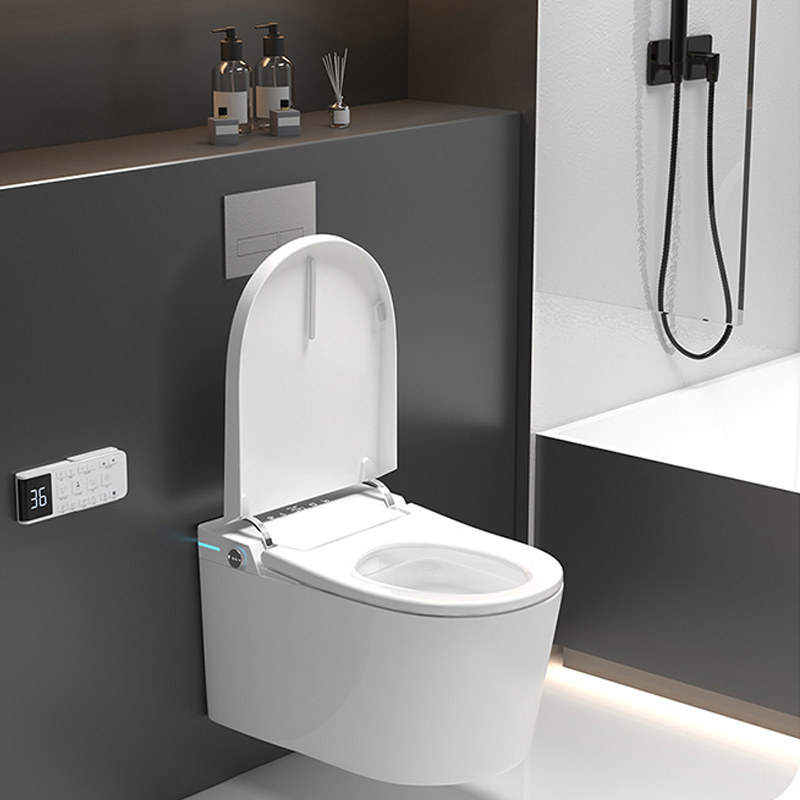 English
English
Jabra Sanitary is a sanitaryware supplier offering toilets, sinks, faucets, bathtubs, etc., at competitive prices. If you're a distributor, wholesaler, or project contractor, get a quote today!
 $23.9 Limited-time Offer
$23.9 Limited-time Offer Consignment Policy
Consignment Policy 20 Years of Experience
20 Years of Experience
As technology advances, the concept of smart homes now includes an often-overlooked area: the bathroom. Smart toilets are leading the way in home innovation, focusing on better hygiene, comfort, and ease of use.
These intelligent toilets have features like built-in bidets, self-cleaning systems, and automatic sensors. They are cleaner and more convenient than traditional toilets.
In this article, we'll explore the technology behind smart toilet bowls and how it's changing our approach to bathroom hygiene.
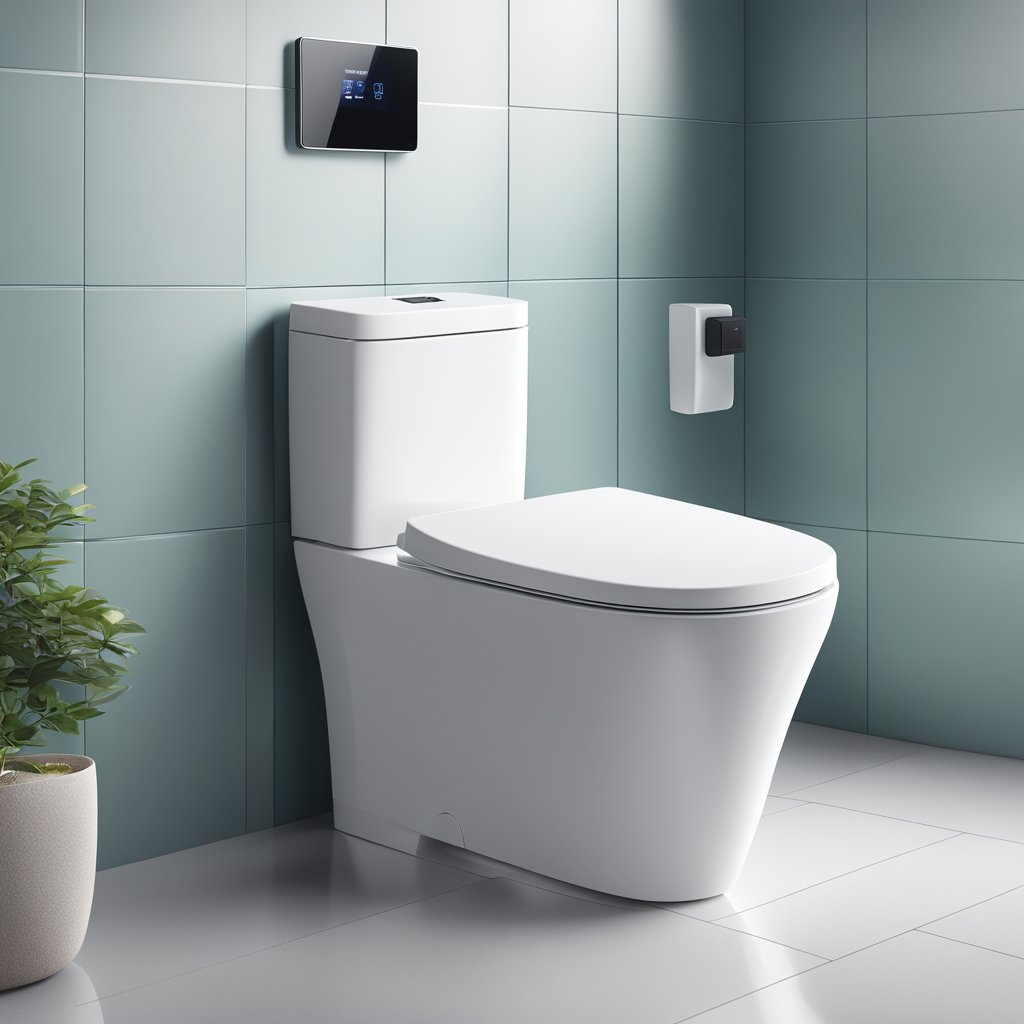
Table of Contents
Smart Toilets Innovations
Understanding the Basics of Smart Toilets
How Smart Toilets are Revolutionizing Bathroom Hygiene
The Benefits of Upgrading to a Smart Toilet
Choosing the Right Smart Toilet for Your Home or Business
Conclusion: The Future of Toilet Hygiene
FAQs
Smart toilets are reshaping the landscape of personal hygiene and bathroom technology with a focus on enhancing user comfort, convenience, and cleanliness.
Smart toilet bidets are revolutionizing hygiene by focusing on comfort, convenience, and cleanliness. These modern smart toilets feature self-cleaning surfaces, automatic flushing, and hands-free operation to help reduce the spread of germs.
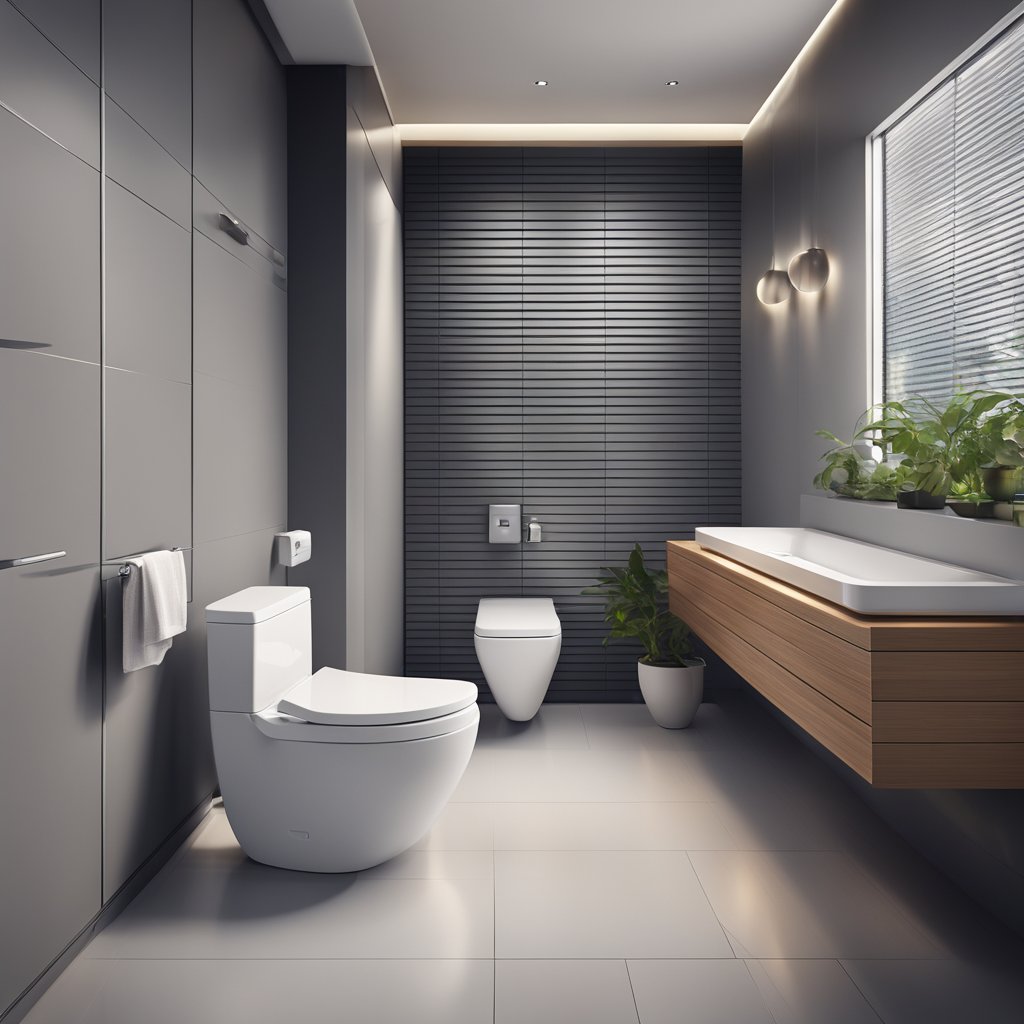
The bidet smart toilets are becoming increasingly recognized for their role in environmental conservation. They help save water with eco-friendly flushing systems.
Smart toilets are changing the way people think about their bathroom experiences, meeting hygiene and comfort needs with advanced features.
Smart WC toilets represent the future of bathroom technology, enhancing convenience and hygiene with innovative features. These advanced toilets are transforming the bathroom experience by prioritizing user comfort and health.
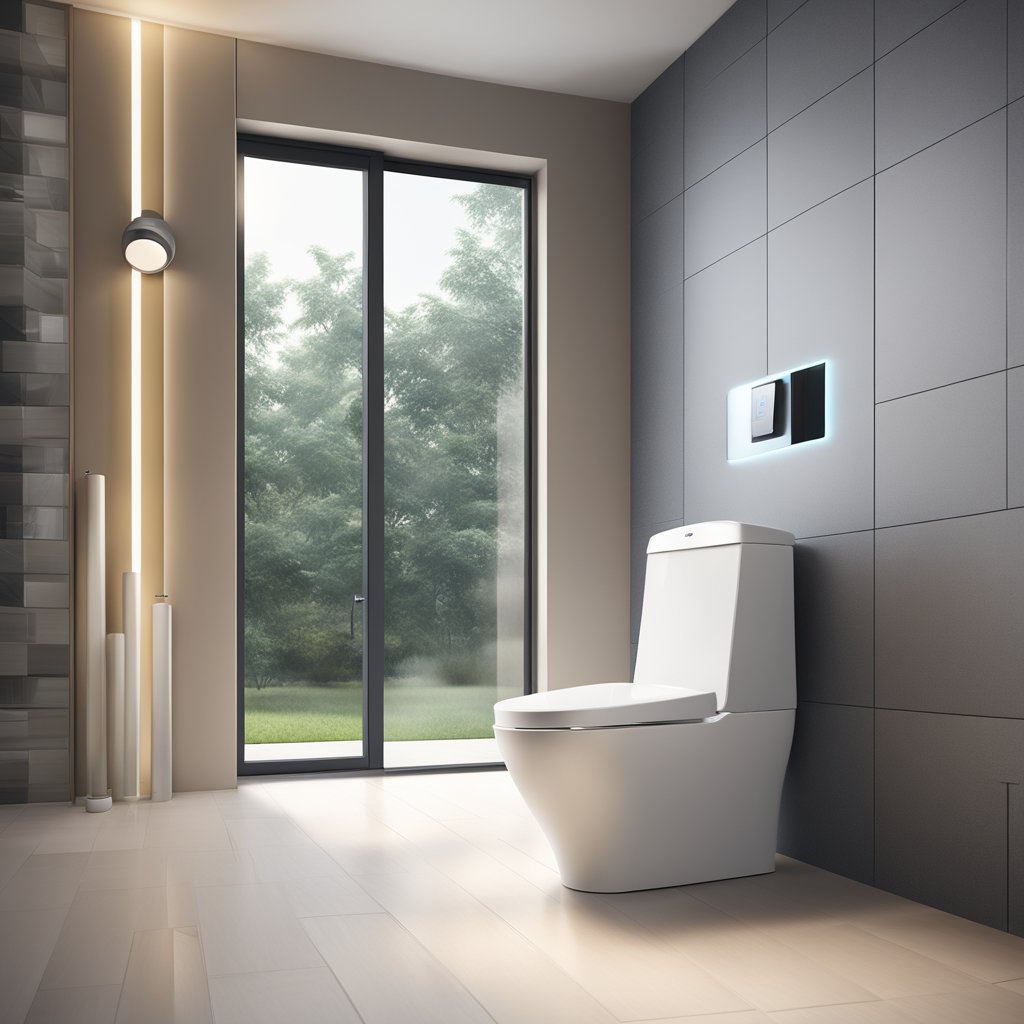
Key Features of Smart Toilets
Luxury smart toilets offer a range of features that improve user experience over traditional toilets.
- Automated Flushing: These toilets flush automatically after use, reducing germ spread.
- Self-Cleaning Functions: They have bidets for warm water cleaning and self-sanitizing nozzles that keep clean without help.
- User Comfort: Features like heated seats, adjustable water temperature, and air drying increase comfort.
- Eco-Friendliness: Smart toilets use less water per flush, contributing to environmental conservation.
0perating Mechanisms
The operation of smart toilets involves several integrated systems:
- Sensors: They use infrared or other technologies to detect presence and activate features like lid opening, flushing, and cleaning.
- Control Panels: Smart toilets often include a control panel or remote, letting users customize settings to their liking.
- Connectivity: Some advanced models connect to smart home systems for remote management, and might have smartphone apps for usage and maintenance alerts.
These self cleaning smart toilets focus on convenience and hygiene, meeting the growing needs of modern homes and health-conscious people.
How Smart Toilets are Revolutionizing Bathroom Hygiene
Smart toilets are transforming bathroom hygiene with their innovative features and advanced technology, changing how we view and maintain cleanliness in washrooms.
Automatic Flushing and Cleaning: Smart toilets automatically flush and clean themselves, eliminating manual flushing and reducing the risk of germ spread. They often use electrolyzed water, UV light, or specialized cleaners to effectively kill germs and remove odors.
Integrated Bidets and Air Dryers: These toilets include bidets and air dryers, offering a cleaner alternative to toilet paper. Bidets provide thorough cleaning, and air dryers remove the need for paper, reducing waste and contamination risks.
Touchless Operation: Many smart toilets operate touchless, allowing users to flush, change settings, and open or close the lid without touching surfaces. This is especially useful in public or shared bathrooms to prevent germ spread.
Customizable Settings: Users can personalize settings such as water pressure, temperature, and bidet nozzle position to fit their preferences and enhance hygiene.
Nightlights and Motion Sensors: Smart toilets may have nightlights and motion sensors, improving safety and convenience during nighttime use and helping to keep the area clean.
Remote Monitoring and Maintenance: Some models enable remote monitoring and maintenance, allowing management of usage patterns and timely maintenance to keep toilets in top condition and prevent hygiene issues.
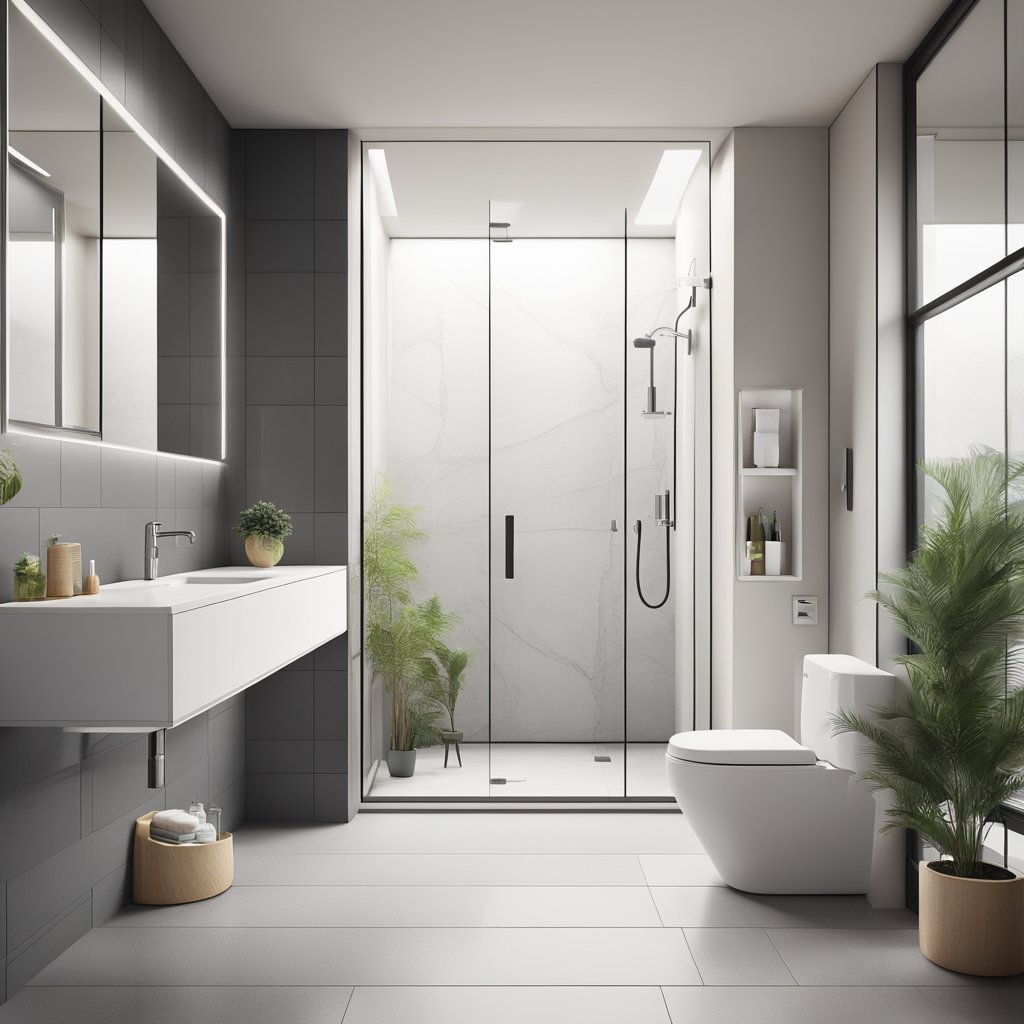
Ergonomics and Comfort in Smart Toilets: Smart toilets prioritize ergonomics to ensure user comfort. These modern facilities offer adjustable seat heights and contoured designs to match an individual's body shape, reducing discomfort and physical strain.
This makes smart toilets especially beneficial for older adults and people with disabilities.
Seat Heating Features: Among the standout comfort elements of smart toilets is the seat warmer, which can be modified to various temperature levels.
This feature provides warmth in cold environments and relaxes muscles. It can be particularly useful for people with health conditions that respond well to gentle heat.
Adjustable Spray Functions: Smart toilets are equipped with advanced bidet features such as customizable spray directions, water pressure, and temperature settings.
These intelligent systems are designed to cater to the unique preferences of each user in terms of hygiene and cleanliness. Users can now adjust the settings to enjoy a personalized and invigorating experience, promoting comfort and satisfaction for everyone.
Smart toilets are setting new standards in cleanliness, convenience for a more intelligent bathroom.
The Benefits of Upgrading to a Smart Toilet
Upgrading to a smart toilet offers a multitude of benefits that extend beyond mere convenience.
Improved Hygiene and Cleanliness: Intelligent bidet toilets are designed to maintain high levels of cleanliness and hygiene by offering features such as automatic flushing, self-cleaning mechanisms, and touchless operation.
These features significantly reduce the risk of cross-contamination and the spread of germs. This, in turn, promotes a healthier and more sanitary environment for users.
Enhanced Comfort and Convenience: Intelligent smart toilets are designed with user comfort in mind.
Personalized and comfortable bidet experience with heated seats, adjustable water pressure and temperature, and customizable settings. The addition of bidets and air dryers removes the need for toilet paper, enhancing convenience and hygiene.
Accessibility and Ease of Use: Electric smart toilets are designed for easy access and user-friendliness, catering to individuals with varying needs. They feature automatic flushing, touchless operation, and adjustable seat heights, making them suitable for those with mobility issues or disabilities.
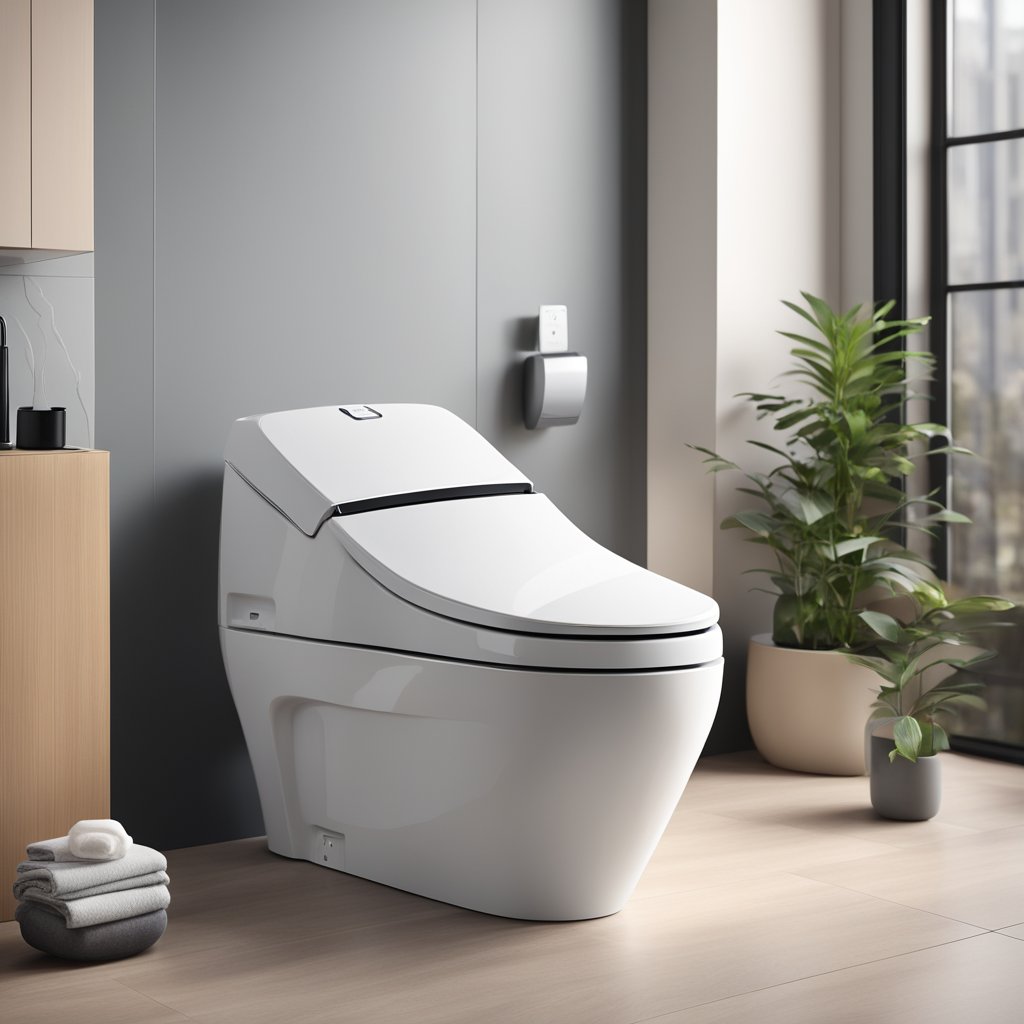
Reduced Maintenance Costs: Although smart home toilets have a higher initial cost compared to traditional ones, they often incur lower long-term maintenance expenses. Thanks to self-cleaning features and remote monitoring, these toilets need less manual cleaning and maintenance, saving on labor costs and prolonging their service life.
Increased Property Value: Installing a smart intelligent toilet can boost a property's value, as these modern fixtures are seen as attractive upgrades in homes and businesses alike. They are often viewed as markers of modernity and commitment to hygiene and sustainability, appealing to potential buyers or renters.
Water and Energy Efficiency: Iintelligent toilet bowl play a key role in promoting environmental sustainability by using advanced technology to save water and energy. This helps reduce waste and environmental impact.
Overall Benefits: Switching to a smart toilet provides numerous advantages, including improved hygiene, enhanced comfort, environmental sustainability, and cost savings, all contributing to better well-being and property value.
Choosing the Right Smart Toilet for Your Home or Business
With the growing popularity of smart toilets, many options are now available, each with unique features. Choosing the right smart toilet can be challenging, but focusing on the following can help:
Functionality and Features: Look at the specific features each smart toilet model offers. Think about your personal needs and preferences, such as integrated bidets, self-cleaning mechanisms, automatic flushing, touchless operation, and adjustable settings.
Focus on the features that meet your needs for hygiene and convenience.
Water and Energy Efficiency: Look for intelligent toilet bidets that prioritize water and energy efficiency.
These models typically include low-flow flush systems, intelligent sensors, and energy-saving modes, which help conserve the environment and lower utility bills over time.
Durability and Maintenance: Choose an intelligent WC made from durable materials and sturdy construction. Look for models with self-cleaning mechanisms and remote monitoring to reduce the need for regular manual cleaning and maintenance, which helps ensure longevity and consistent cleanliness.
Accessibility and Inclusivity: If mobility issues or disabilities are a concern in your household, opt for smart toilets with features like adjustable seat heights, touchless operation, and straightforward controls to enhance accessibility.
These features promote inclusivity and ensure a hygienic experience for all users.
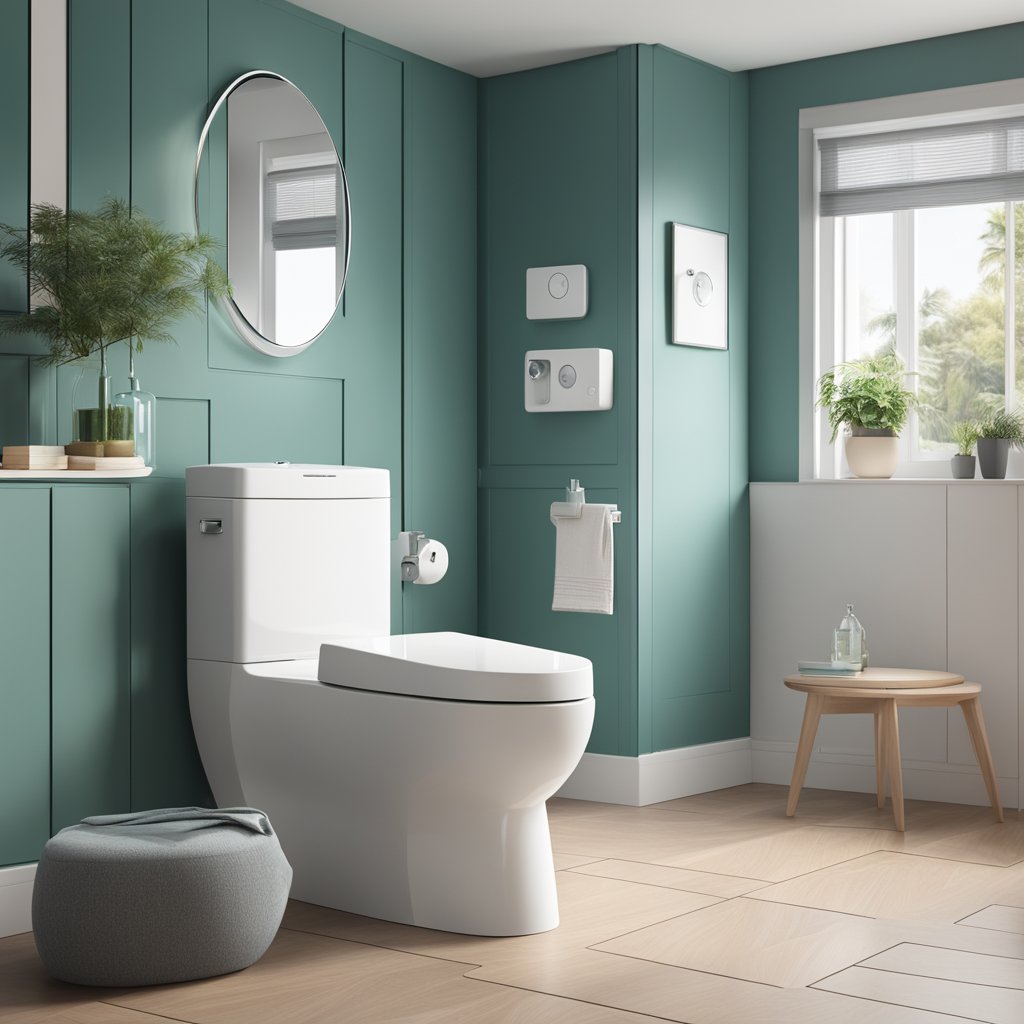
Integration and Smart Home Compatibility: If you're integrating the toilet with a smart home system or planning a comprehensive home automation setup, choose models compatible with well-known smart home platforms. This allows for enhanced convenience through remote control and monitoring.
Brand Reputation and Customer Support: Check the brand's reputation for quality, reliability, and customer service. Choosing a well-respected brand with good customer support provides assurance and a smoother experience over the product's lifespan.
Budget and Long-term Costs: Although automatic toilets are more expensive initially, consider the long-term savings from water and energy efficiency, lower maintenance needs, and greater durability.
Additionally, factor in the potential increase in property value that a smart toilet can bring.
Keep in mind that the ideal choice varies based on your individual needs, preferences, and living environment. Investigate various models, consult user feedback, and factor in long-term convenience and sustainability before making your decision.
Conclusion: The Future of Toilet Hygiene
Smart toilets are transforming toilet hygiene with their innovative technology.
These electronic toilet bowls greatly improve hygiene and reduce health risks by using advanced technologies like automatic flushing, self-cleaning systems, touchless operation, and smart sensors to lessen cross-contamination and the spread of germs. They also help eliminate bad odors, enhance air quality, and optimize water and energy use, making the bathroom experience more hygienic and eco-friendly.
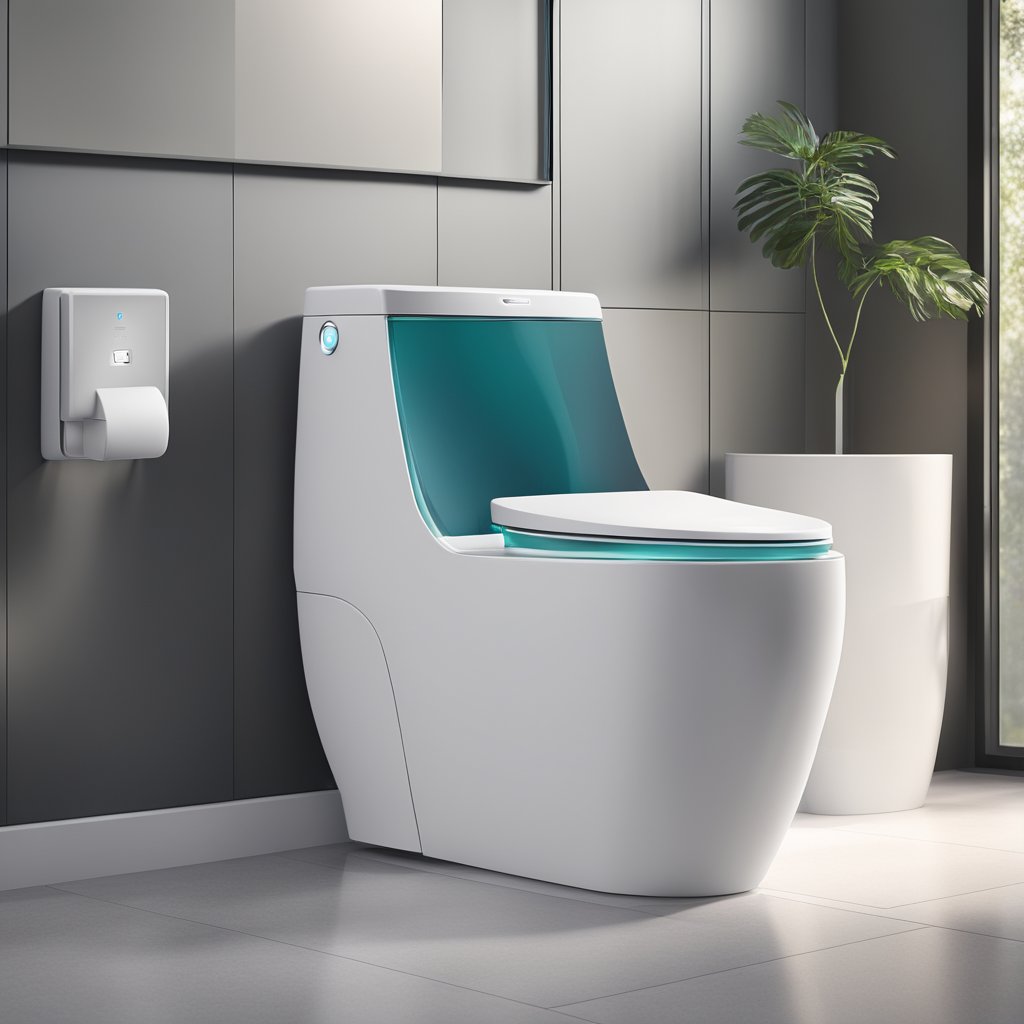
Additionally, smart toilets are designed to be accessible and inclusive, accommodating users with different needs and abilities.
As technology continues to evolve, the future of toilet hygiene with smart toilets holds even greater promise.
Advances in materials, cleaning technologies, and smart home integration will continue to improve these fixtures, providing unmatched hygiene, convenience, and sustainability.
Wrap Up
Enhance your bathroom hygiene by selecting smart toilets. They offer a comfortable, convenient, and sustainable option for your home or business. Also, if you want a smart or one-piece toilet that can reduce your water usage, check out the Jabra Sanitary toilets collection today!
From my experience, smart toilets are a great option due to their innovative features and dependable performance.
FAQs
In the changing world of home technology, smart toilets are gaining popularity for their improved hygiene and convenience.
This FAQ section addresses common inquiries about their uses, features, and practical considerations.
What are the primary benefits of using a smart toilet?
Smart toilets offer several benefits, including enhanced personal hygiene, user comfort, and eco-friendly features like reduced water usage. They are equipped with advanced functions such as heated seats, user-specific settings, and automated waste analysis for health monitoring.
How do smart toilet self-cleaning features contribute to overall hygiene?
Smart toilets with self-cleaning features, such as UV light sterilization and automated bowl and nozzle cleaning, are highly effective in reducing the presence of harmful bacteria and germs. This contributes to a cleaner bathroom environment and promotes better personal hygiene.
What maintenance considerations should be kept in mind for smart toilets?
When purchasing a product, users should consider the availability of replacement parts, the need for regular software updates, and adherence to the manufacturer's recommended maintenance routines.
Ensuring proper care extends the smart toilet's lifespan and maintains its functionality.
Can smart toilets with bidet functions fully replace traditional toilet paper usage?
Smart toilets with bidet functions can reduce or fully replace the need for traditional toilet paper.
Intelligent toilet seats with integrated bidet features offer adjustable water temperature and pressure for a gentle and effective cleansing experience.
What are some common issues users encounter with smart toilets?
Users may encounter technical issues, unexpected repairs, and difficulty using complex features. Accessibility and ease of use can also be concerns for elderly users or those with disabilities.
How does the cost of installing a smart toilet compare to traditional toilets?
The cost of installing a smart toilet is typically higher than that of traditional toilets due to their advanced technology and additional features. However, they can lead to long-term savings through water conservation and possibly reduced need for toilet paper.








